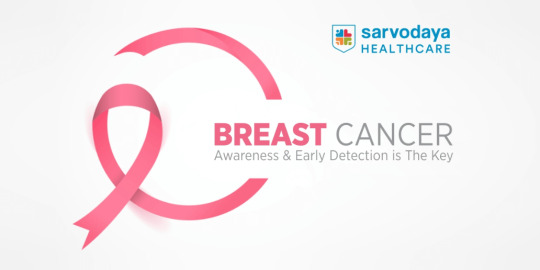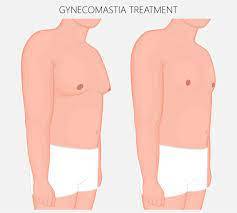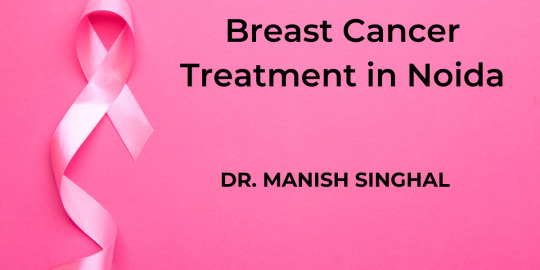#breast cancer treatment in delhi
Text
What is the Metastatic Cancer?

When cancer spreads through the body from where it first formed, it is called metastatic cancer. This article’s objective is to cover all the aspects of metastatic cancer, including its causes, symptoms, diagnosis, and treatment options from Dr. Manish Singhal from CCI, the best breast cancer doctor in Noida, and the emotional roller-coaster that follows.
What is Metastatic Cancer?
It occurs when cells break away from a primary tumor and travel through lymph or blood to a new site in the body. These “traveler” cells of the primary tumor develop into secondary tumors elsewhere in the body, such as other organs or tissues. In other words, they are made up of cells that closely resemble those that make up the original (primary) tumor but not the organ in which they are found.
For example, if breast cancer moves to another organ, like the lungs, lung cells will not be seen in them. Otherwise, this would be called lung cancer. Instead, these will still be breast cancers that have invaded the lungs. For this one needs breast cancer treatment in Noida.

How Does Cancer Spread?
Cancer metastasis involves several complex steps:
1. Invasion
cancer cells invade nearby normal tissue.
2. Intravasation
This is when cancer cells move into nearby blood vessels or lymphatic vessels.
3. Circulation
The movement of cancers via the bloodstream/lymphatic system
4. Extravasation
This is when cancer sticks itself out of blood/lymph vessels into new tissues
5. Proliferation
The number increase and growth of cancers in this place
6. Angiogenesis
Development of new blood vessels for feeding nutrients and oxygen supply purposes on tumor area which has now become metastatic.
Common Sites of Metastasis
Each type of cancer tends to spread most commonly to certain areas within the body- The most common sites for metastasis include;
Bones
Breast, prostate, and lung cancers often spread to the bones.
Liver
Colorectal, pancreatic, and breast cancers commonly metastasize to the liver.
Lungs
Bladder, kidney, colorectal, and breast cancer often spread to the lungs.
Brain
Lung, melanoma, renal, and breast cancer frequently metastasize in the brain.
Symptoms of Metastatic Cancer
The symptoms associated with metastatic cancer depend on where it is in the body. Some common symptoms include:
Bone metastasis
Bone pain, fractures, and increased calcium levels
Liver metastasis
Jaundice, abdominal bloating, and poor appetite
Lung metastasis
Shortness of breath, persistent cough (or wheezing) and chest pain
Brain metastasis
Headaches, seizures, or convulsions as well as neurologic deficits.
These signs tend to appear slowly over time; they can also be mistaken for other things making it hard to diagnose them early enough.
Diagnosis of metastatic cancer
Diagnosis of metastatic cancer involves several steps and various diagnostic tools, such as:
1. Medical History and Physical Examination
Through detailed examination, an oncologist in Noida tries to understand the patient’s symptoms and medical history.
2. Imaging Tests
X-rays, CT scans, MRI scans, PET scans, and bone scans are used to detect the presence and extent of metastases.
3. Biopsy
Microscopic examination of a sample of tissue from the suspected metastatic tumor to confirm, if it is cancerous or benign and identify the type of malignant cells.
4. Blood Tests
These tests can give information to an oncologist in Noida about your overall health, and organ function, as well as help identify certain tumor markers.
Treatment of Metastatic Cancer
The main goals in treating metastatic cancer are to control its spread and alleviate symptoms by improving the quality of life for patients. Options include but are not limited to:
1. Systemic Therapies
Chemotherapy
Administration of drugs that kill any rapidly dividing cell within the body.
Hormone Therapy
To block hormones that stimulate growth in some types, such as breast or prostate gland cancers. It is often applied in breast cancer treatment in Noida.
Targeted Therapy
These drugs are specifically designed to target specific genetic molecular defects known as mutations within cancer cells only.
Immunotherapy
It enhances the immune system’s ability to identify the presence of different forms like viruses or bacteria and then activate an adaptive response against them by producing antibodies by themselves towards fighting off such foreign substances when they invade body organs.
2. Local Treatments
Radiation
Radiations use high-energy rays directed at tumors or areas where cancer cells are present – this kills those cells present in these regions without harming other bodily tissues around them; thus shrinking cancers down until they shrink away on their own accord due to natural death process called apoptosis without causing any harm whatsoever.
Surgery
Procedures like laparoscopic resection are often used by a cancer doctor in Delhi to remove a tumor or metastasis from the affected area when feasible.
3. Palliative Care
Focuses on palliating symptoms and improving the quality of life for those with advanced cancer, such as pain management, nutritional support, and counseling.
Advances in Metastatic Cancer Treatment
In recent years, significant progress has been made in the treatment of metastatic cancer, mostly through targeted therapies and immunotherapies. It includes Breast Cancer Treatment in Delhi. Notable among these developments are:
Personalized Medicine
Customizing treatment based on genetic information obtained from tumor samples taken during surgical removal operations carried out specifically against different types/originations sites within patients’ bodies where malignant masses have been identified presents itself option available so far;
Checkpoint Inhibitors
Immunotherapy agents that can help the immune system recognize and destroy neoplastic cells.
CAR-T Cell Therapy
An immunotherapy approach that modifies a patient’s T-cells is employed by a cancer doctor in Delhi to recognize and kill cancers in a better way.
PARP Inhibitors
Targeted therapy medications are appropriate for some gene mutations as with BRCA-altered malignancies.
Conclusion
Metastatic cancer is a very challenging condition to diagnose, but comprehending it and the options for Breast Cancer Treatment in Delhi can enable patients and their families to tread through this difficult path. Incessant improvement of the prognosis and quality of life among people with metastatic cancer has been fostered by innovations in medical science.
Being well-informed, accessing appropriate healthcare from Dr. Manish Singhal from CCI, the best breast cancer doctor in Noida, obtaining practical help, or working hand-in-hand with emotional supporters enables individuals diagnosed with metastatic cancer to remain hopeful while facing difficulties that lie ahead. As we look at the future journey ahead, taking every step toward understanding and controlling the disease can have enormous effects on those whose lives have been touched by metastatic cancer.
#best oncologist in noida#oncologist in Noida#cancer doctor in Noida#cancer doctor in Delhi#best breast cancer doctor in Noida#Breast Cancer Treatment In Noida#Breast Cancer Treatment In Delhi
0 notes
Text
5 LIFESTYLE HABITS THAT COULD BE PUTTING YOU AT RISK FOR CANCER

A well-balanced diet rich in nutrients is essential for maintaining a healthy body and reducing the risk of cancer. Here’s how different food groups contribute to cancer prevention, according to Dr. Ashish Gupta, a USA trained, American board-certified medical oncologist, and Chief of Medical Oncology at Unique Hospital Cancer Centre, Dwarka, India:
Fruits and Vegetables: Packed with vitamins, minerals, and antioxidants, fruits and vegetables play a crucial role in reducing the risk of various cancers, especially those affecting the digestive system. Incorporating a variety of colorful fruits and vegetables into your diet can provide protective benefits against cancer.
Whole Grains and Legumes: Opting for whole grains like brown rice, oats, and whole wheat, along with legumes such as lentils and beans, can help lower the risk of colorectal cancer. These fiber-rich foods aid in digestion and promote overall gut health.
Lean Proteins: Choose lean sources of protein such as fish, poultry, tofu, nuts, and seeds over processed meats like bacon and sausage. Processed meats have been linked to an increased risk of colorectal cancer, making it advisable to limit their consumption, especially in children.
Healthy Fats: Incorporating sources of healthy fats like olive oil, avocados, and nuts into your diet can help reduce the risk of certain cancers. Conversely, diets high in saturated and trans fats, often found in processed and fried foods, may increase cancer risk, particularly prostate cancer.
Dairy and Alternatives: Opt for reduced-fat dairy products and alternatives to maintain a healthy balance of calcium and protein in your diet. High intake of dairy fat has been associated with an elevated risk of prostate cancer, so moderation is key.
Lifestyle Factors and Cancer Risk
Dr Ashish Gupta said, in addition to diet, several lifestyle factors can influence the likelihood of developing cancer. Here are some important considerations:
Smoking: Tobacco use is the leading cause of lung cancer worldwide. Quitting smoking and avoiding second-hand smoke are crucial steps in reducing the risk of lung cancer and other smoking-related cancers.
Physical Activity: Regular exercise not only helps maintain a healthy weight but also reduces the risk of various cancers, including breast and colon cancer. Aim for at least 150 minutes of moderate-intensity exercise per week.
Alcohol Consumption: Limiting alcohol intake can significantly lower the risk of several cancers, such as those of the mouth, throat, esophagus, liver, and breast. It’s recommended to adhere to moderate drinking guidelines to minimize cancer risk.
Sun Protection: Protecting your skin from harmful UV rays by wearing sunscreen, protective clothing, and seeking shade can reduce the risk of skin cancer, including melanoma.
Specific Foods and Their Impact on Cancer Risk
Understanding how certain foods can affect the risk of specific types of cancer is crucial for making informed dietary choices. Here’s a closer look at some common cancers and dietary recommendations by Dr Ashish Gupta:
Lung Cancer: While fruits and vegetables offer some protection against lung cancer, the most effective prevention strategy remains avoiding tobacco smoke, including second-hand smoke.
Breast Cancer: Incorporating mono-unsaturated fats from sources like olive oil and increasing vegetable intake can help reduce the risk of breast cancer. Limiting alcohol consumption is also important for breast cancer prevention.
Prostate Cancer: Men can reduce their risk of prostate cancer by maintaining a healthy weight, consuming vegetables like tomatoes rich in lycopene, and avoiding a high-fat diet predominantly from animal sources.
Bowel Cancer: A diet high in fiber from vegetables and grains, along with limited consumption of red and processed meats, can help lower the risk of bowel cancer. Additionally, maintaining an active lifestyle is beneficial.
Conclusion
In conclusion, adopting a healthy diet and lifestyle can significantly reduce the risk of developing cancer. As per Dr Ashish Gupta, incorporating nutrient-rich foods, engaging in regular physical activity, and avoiding harmful habits like smoking and excessive alcohol consumption, you can take proactive step
#best oncologist in delhi ncr#best oncology doctor in delhi#cancer tratment in dwakra#unique cancer hospital#top oncologists in dwarka#cancer doctor in delhi#best doctor for breast cancer#breast cancer treatment in delhi#lung cancer specialists#lung cancer treatment in delhi
0 notes
Text
0 notes
Text
Breast Cancer Treatment in Gurgaon - Ensuring Optimal Breast Health
Our breast cancer treatment options include surgery, radiation therapy, chemotherapy, targeted therapy, and hormonal therapy. We work with our patients to develop personalized treatment plans that meet their individual needs and preferences.
#Breast Cancer Treatment in Gurgaon#Best breast cancer doctor in India#Breast Cancer Treatment in Delhi#Breast Cancer Treatment in NCR
0 notes
Text
Methods of Breast Cancer Treatment in Gurgaon
Visit CK Birla Hospital to get consultation from the Breast Surgeon in Delhi NCR and advanced surgery for Breast health issues like Breast Pain, Cyst, Cancer and many more.
#Breast Cancer Treatment in Gurgaon#Breast Pain Treatment in Gurgaon#Breast Cancer Treatment in Delhi#Breast Surgeon in Delhi NCR
0 notes
Link
Breast Cancer Treatment in delhi
Dr Waseem Abbas is one of the best and renowned breast cancer specialist in Delhi He provides the most genuine treatment possible for breast cancer patients. Consult us @+91- 9810619717

0 notes
Text
#best cancer specialist in delhi#oncologist in delhi#best oncologist in delhi#best oncology doctor in delhi#best medical oncologist in delhi#best breast cancer treatment#medical oncologist in delhi#dr mohit agarwal fortis shalimar bagh#best oncologist doctor near me#best oncologist in shalimar bagh
0 notes
Text
Can You Fully Recover From Breast Cancer?

Yes, some people can fully recover from breast cancer, especially if it's caught early and treated effectively. But it depends on factors like how advanced the cancer is and how well the treatment works. Some people beat breast cancer completely and live long, healthy lives afterward. Before undergoing any cancer treatment, it is crucial to consult with a Breast Cancer Doctor. If you are seeking a Best Cancer Doctor in Delhi, you can Book an Oncologist Appointment. Dr. Dodul Mondal currently serves as the Director of Max Super Speciality Hospital in Saket, Delhi.
#Best Cancer Doctor in Delhi#cancer doctor#best radiation oncologist in delhi ncr#radiation oncologist#cancer treatment#oncologist#bestradiationoncologistindelhincr#cancer#cancer specialist in delhi#breast cancer doctor#breast cancer
0 notes
Text

The major causes behind the increasing death rate are late detection of the condition and less number of Breast Cancer Hospital across the country. It has been observed that, when detected at an early stage, the survival rate is around 90%. Read more about how an early detection can save your life.
#Breast Cancer Treatment Hospital in Greater Noida West#Breast Cancer Treatment Hospital in Faridabad#Breast Cancer Treatment Hospital in Delhi NCR#Breast Reconstruction by Plastic Surgery#Breast Cancer Diagnosis#Breast Cancer#Breast Cancer's Awareness
0 notes
Text
What are the treatment options for Gynecomastia?

Gynecomastia is a condition characterized by the enlargement of breast tissue in males. Treatment options for gynecomastia depend on the underlying cause, severity of symptoms, and individual preferences. Here are some common approaches:
1-Observation:
In some cases, especially during puberty, gynecomastia may resolve on its own without the need for specific treatment. Regular monitoring by a healthcare professional is advisable.
2-Lifestyle Changes:
For cases related to lifestyle factors such as obesity, adopting a healthy diet and engaging in regular exercise can help reduce body fat and improve the appearance of gynecomastia.
3-Medications:
Hormonal medications may be prescribed to address gynecomastia, particularly if an imbalance in hormones (such as estrogen and testosterone) is identified as the cause. Common medications include tamoxifen and aromatase inhibitors.
4-Surgery (Mastectomy):
Surgical removal of excess breast tissue may be recommended for severe or persistent cases of gynecomastia. This procedure is known as mastectomy and can involve liposuction, excision, or a combination of both.
5-Liposuction:
Liposuction may be used to remove excess fatty tissue from the breast area. This is often a component of surgical treatment.
6-Excision:
In cases where glandular tissue is the primary concern, surgical excision may be performed to remove the enlarged glandular tissue. This procedure may leave a scar, and the extent of the surgery depends on the severity of gynecomastia.
7-Counseling and Support:
For individuals experiencing emotional distress or psychological impact due to gynecomastia, counseling and support groups can be beneficial. Talking to a mental health professional can help address body image concerns and improve overall well-being.
It's crucial to consult with a healthcare professional to determine the most appropriate treatment for gynecomastia based on individual circumstances. The choice of treatment will depend on factors such as the underlying cause, the degree of breast enlargement, and the individual's overall health.
For more information related Gynecomastia, consult Dr. Rajinder Kaur Saggu one of the best Breast Surgeon in Delhi or you can contact us on 9871056323.
#breast cancer surgeon in delhi#dr. rajinder kaur saggu#oncoplastic breast surgeon in delhi#breast specialist doctor in delhi#breast lump doctor in delhi#healthcare#breast cancer surgeon in delhi.#breast specialist lady doctor in delhi#breast surgeon in delhi.#Breast Surgeon in Delhi#gynecomastia#gynecomastia treatment
0 notes
Text
Best Cancer Doctor in Delhi NCR at fortis South Delhi, Vasant Kunj
Meet renowned cancer specialists from India abroad at Delhi Cancer Group Find the Best Cancer Doctor in Fortis South Delhi Vasant Kunj Top notch care
Please Visit Our Website - https://delhicancergroup.com/
Address - Room No. B -31 , Basement Opd wing , Fortis Flt. Lt. Rajan Dhall Hospital, Aruna Asaf Ali Marg, Pocket 1, Sector B, Vasant Kunj, New Delhi, Delhi 110070
Phone - +91 9205645883
#Best Oncologist in Delhi NCR at fortis South Delhi#Vasant Kunj#Best Doctor for Thyroid Cancer in Delhi at fortis South Delhi#BREAST CANCER TREATMENT IN DELHI NCR at fortis South Delhi#Best Doctor for BREAST CANCER in Delhi at fortis South Delhi#Best Doctor For Female cancer treatment in delhi at fortis South Delhi#Best doctor for cervical cancer treatment in delhi at fortis South Delhi
1 note
·
View note
Text
Innovative Approaches in Breast Cancer Treatment in Noida Medical Advancements
Dr. Manish Singhal provides the best breast cancer treatment in Noida. Breast cancer is a prevalent and potentially life-threatening disease that affects a significant number of women worldwide. The advancements in medical science have led to innovative approaches in breast cancer treatment, and Noida, a city in India, has emerged as a hub for cutting-edge medical advancements in this field. In this article, we will explore the latest techniques and therapies used in the treatment of breast cancer, highlighting Noida's contributions to improving patient outcomes.

I. Introduction
Breast cancer is a malignant tumor that develops in the breast cells. It is the most common cancer among women globally and has a substantial impact on their physical and emotional well-being. Over the years, extensive research and clinical trials have paved the way for revolutionary breakthroughs in breast cancer treatment.
II. Understanding Breast Cancer
A. Definition and Overview
Breast cancer refers to the uncontrolled growth of abnormal cells in the breast tissue. These cells can invade surrounding tissues and potentially spread to other parts of the body, leading to metastasis. Understanding the nature of breast cancer is crucial for developing effective treatment strategies.
B. Risk Factors
Several risk factors increase the likelihood of developing breast cancer. These include age, family history, genetic mutations (such as BRCA1 and BRCA2), hormonal factors, obesity, and alcohol consumption. Awareness of these risk factors aids in early detection and timely intervention.
C. Early Detection
Early detection plays a vital role in successful breast cancer treatment. Regular breast self-exams, clinical breast exams, and mammography screenings enable the identification of suspicious lumps or changes in breast tissue. Early diagnosis enhances the chances of less aggressive treatments and improved outcomes.
III. Conventional Breast Cancer Treatment Methods
Traditionally, breast cancer treatment has relied on a combination of surgery, radiation therapy, chemotherapy, and hormonal therapy. These methods have been effective in combating the disease, but they often come with side effects and limitations.
A. Surgery
Surgical interventions, such as lumpectomy and mastectomy, involve the removal of cancerous tumors or the entire breast. These procedures aim to eradicate the tumor and prevent its spread to nearby tissues.
B. Radiation Therapy
Radiation therapy utilizes high-energy radiation to target and destroy cancer cells. It is commonly used after surgery to eliminate any remaining cancer cells and reduce the risk of recurrence.
C. Chemotherapy
Chemotherapy involves the use of drugs to kill cancer cells throughout the body. It is administered orally or intravenously and can be effective in treating breast cancer that has spread beyond the breast.
D. Hormonal Therapy
Hormonal therapy is recommended for hormone receptor-positive breast cancer, where the tumor grows in response to hormones like estrogen or progesterone. This treatment blocks hormone receptors or lowers hormone levels to prevent cancer growth.
0 notes
Text
10 WARNING SIGNS OF SKIN CANCER YOU SHOULD NEVER IGNORE

Early detection is crucial in the fight against cancer. Alongside regular screenings and check-ups, paying attention to changes in your body can aid in catching cancer at its earliest stages. Recognizing warning signs and symptoms can prompt timely medical intervention, potentially improving treatment outcomes. Here are 10 symptoms that may indicate the presence of cancer and warrant a consultation with your healthcare provider, as emphasized by Dr. Ashish Gupta, USA trained, American board-certified medical oncologist, Chief of Medical Oncology at Unique Hospital Cancer Centre in Dwarka, India
Abnormal Periods or Pelvic Pain: While irregular periods and occasional pelvic discomfort are common, persistent changes in your menstrual cycle or chronic pelvic pain could signal underlying gynecological cancers such as cervical, uterine, or ovarian cancer.
Changes in Bathroom Habits: Significant alterations in bowel or bladder habits, including persistent constipation or diarrhea, blood in stool or urine, and increased frequency of urination, may indicate colorectal, prostate, or bladder cancer.
Bloating: Chronic bloating lasting more than two weeks can be a red flag for ovarian cancer and various gastrointestinal malignancies. Monitoring and reporting persistent bloating to your doctor is crucial for timely evaluation.
Breast Changes: New breast lumps, skin dimpling, nipple changes, or unusual discharge should be promptly evaluated, as they may signify breast cancer. It’s important to note that breast cancer can affect men as well.
Chronic Coughing: A persistent cough, especially if dry, lasting more than two weeks could be a warning sign of lung cancer. Early detection through medical assessment is essential for timely intervention.
Chronic Headache: Headaches persisting for more than two weeks and unresponsive to typical treatments may be associated with brain tumors. Seeking medical attention for prolonged headaches is paramount for accurate diagnosis and management.
Difficulty Swallowing: Persistent difficulty in swallowing, sensation of food sticking in the throat, or throat pain lasting more than two weeks may indicate throat, lung, or stomach cancer and warrants medical evaluation.
Excessive Bruising: Sudden onset of unexplained bruises in unusual locations, not attributable to injury, may indicate underlying blood cancers. Prompt medical assessment is necessary for proper diagnosis and management.
Frequent Fevers or Infections: Recurrent fevers or frequent infections may suggest compromised immunity, possibly due to conditions such as lymphoma or leukemia. Timely medical evaluation is essential for appropriate management.
Oral Changes: Persistent oral sores, lesions, or painful areas, particularly in individuals with a history of smoking or heavy alcohol consumption, should be evaluated for potential oral cancers.
Skin Changes: Changes in the appearance of moles or birthmarks should be monitored closely. Utilizing the ABCDE mnemonic-Asymmetry, Border irregularity, Color variation, Diameter increase, and Evolution-can aid in identifying concerning skin changes that warrant medical attention.
Persistent Pain: Unexplained and persistent pain lasting beyond standard treatment duration requires medical assessment to rule out underlying malignancies.
Persistent Fatigue: Sudden and persistent fatigue unrelated to changes in activity level or sleep patterns may indicate underlying hematological cancers such as leukemia or lymphoma and necessitates medical evaluation.
Postmenopausal Bleeding: While postmenopausal bleeding may have various causes, persistent occurrences should prompt evaluation for cervical or uterine cancer.
Stomach Pain or Nausea: Unexplained stomach discomfort or persistent nausea lasting more than two weeks should be investigated, as they may indicate gastrointestinal or abdominal cancers.
Unexplained Weight Loss: Significant unintentional weight loss or loss of appetite without apparent cause could be indicative of various cancers, particularly those that have metastasized.
Unusual Lumps: Any new or persistent lumps or masses should be evaluated by a healthcare professional to rule out potential malignancies, especially if accompanied by other concerning symptoms.
Conclusion
Recognizing early warning signs of cancer and promptly consulting a healthcare provider for evaluation is crucial for timely diagnosis and treatment. By being vigilant and proactive about changes in your body, you can play an active role in safeguarding your health and well-being. If you are searching for the best dr in dwarka contact Dr. Ashish Gupta
#Skin Cancer in Delhi#Skin Cancer Doctor in Dwarka#best Skin Cancer Speaclist#top oncologists in dwarka#best oncologist in delhi ncr#best oncology doctor in delhi#cancer tratment in dwakra#unique cancer hospital#best doctor for breast cancer#cancer doctor in delhi#breast cancer treatment in delhi#lung cancer specialists#lung cancer treatment in delhi
0 notes
Text
Cervical Cancer Symptoms, Diagnoses & Treatment
#breast cancer specialist#cancer surgeon in delhi#breast cancer#ovarian cancer#breast cancer treatment#uterine cancer#cancer specialist#surgical oncologist#cancer doctor#cancer surgeon
0 notes
Text
Get the Expertise of Breasthealth for Your Breast Health
If you want the best breast cancer doctor in India to take care of your breast health, schedule an appointment with Breasthealth today. Let us help you fight breast cancer and ensure a healthy and happy life ahead.
#Best Breast Cancer Doctor in India#Breast Cancer Treatment in Haryana#Breast Cancer Treatment in Gurgaon#Breast Cancer Treatment in Delhi#Breast Cancer Treatment in NCR
0 notes
Text
Effective Cancer Treatment at Delhi NCR with Homeo Foundation
We suggest that patients consult with us before opting for chemotherapy, as our treatment is painless and side-effect free. Our oncologist will prepare and select medicines based on proper diagnosis, which will be particularly useful for patients who cannot undergo chemotherapy. Choosing HF for cancer treatment at Delhi NCR will give patients peace of mind, knowing that they are receiving the best possible treatment available.
#cancer treatment in delhi ncr#cancer specialist in delhi ncr#best cancer doctor in delhi ncr#breast cancer treatment in homeopathic treatment
0 notes